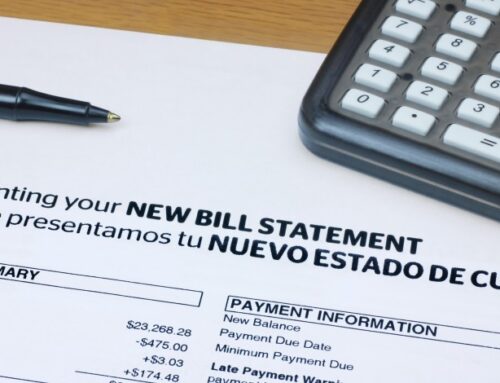As a homeowner, you’ve likely heard the term “home equity” thrown around in discussions about finances and real estate. But what exactly is home equity, and why is it important? Understanding home equity is crucial for homeowners, as it can serve as a financial resource for renovations, debt consolidation, retirement planning, and more.
In this article, we’ll break down the concept of home equity, why it’s significant, how it’s calculated, and the strategic ways you can leverage it to your advantage, as well as some common questions about home equity.
What is Home Equity?
Home equity is the portion of your property’s value that you actually own outright, without any debt. It’s calculated as the difference between the current market value of your home and the outstanding balance on your mortgage. Essentially, home equity represents your ownership stake in your property.
Equity is a significant asset for most homeowners. It can be used as collateral for home equity loans, providing a source of funds for various needs without selling the home. Furthermore, home equity contributes to overall net worth and can play a critical role in financial planning for goals like home improvements, education funding, and retirement.
How home equity is calculated
Calculating your home equity is relatively straightforward. Here’s the formula:
Market Value of Home – Remaining Mortgage Balance = Home Equity
For example, if your home is worth $300,000 and you still owe $200,000 on your mortgage, your home equity would be $100,000 ($300,000 – $200,000).
Use one of our home equity calculators to find out the amount of equity you have in your home and more.
How home equity builds over time
As you make regular mortgage payments, a portion of each payment goes toward reducing the principal balance of your loan. Over time, this reduction in debt increases your equity.
The market value of your home can increase over time due to factors such as improvements in the housing market, economic conditions, and renovations or upgrades to your property. This appreciation further boosts your home equity.
When your home’s market value is higher than the outstanding mortgage balance, you have positive equity. This is a desirable situation and indicates financial health in terms of property ownership.
When the outstanding mortgage balance exceeds the market value of your home, you have negative equity, often referred to as being “underwater” on your mortgage. This can happen if property values decline significantly or if a large amount of borrowing occurs.
How to build home equity faster
- Make extra mortgage payments: Additional payments toward your principal can accelerate the growth of your home equity.
- Consider home improvements: Strategic upgrades can increase your home’s market value.
- Get shorter loan terms: Opting for a shorter mortgage term, like 15 years instead of 30 years, can build equity faster due to higher monthly payments but lower overall interest costs. Consider refinancing your mortgage to get better terms.
Understanding home equity and how it works can empower you to make informed financial decisions and leverage this asset effectively to achieve your financial goals.
Strategic Ways of How to Use Home Equity
There are a number of things you can do with the equity in your home. Each of these options can require considerable funds, so your home’s equity can be your best answer.
Home improvements
Investing in home renovations or upgrades can be a smart way to increase the value of your property and enhance your living space.
A kitchen remodel is one of the most effective ways to increase the value of your home. Upgrading appliances, countertops, and cabinets can modernize the space and make it more attractive to potential buyers.
Updating bathrooms can also yield a high return on investment. Consider replacing outdated fixtures, adding energy-efficient features, or expanding the space if possible.
Improving the exterior of your home can boost its curb appeal and make a positive first impression. This might include landscaping, adding a new front door, or repainting the exterior.
Debt consolidation
Consolidating high-interest debt with a home equity loan or line of credit can help you save money on interest and simplify your finances.
If you have high-interest credit card debt, using a home equity loan to pay off those balances can transfer that debt to a better interest rate and lower monthly payments. Consolidating personal loans or other unsecured debts into a single, lower-interest home equity loan can help you pay off debt more quickly and affordably.
If you have student loan debt with high interest rates, using home equity to consolidate those loans can potentially save you thousands of dollars in interest over time.
Emergency fund
Establishing a home equity line of credit (HELOC) can provide a flexible source of funds for unexpected expenses or financial emergencies.
A HELOC can serve as a financial safety net for unexpected expenses like medical bills, car repairs, or home repairs. Having access to funds when you need them can help you avoid high-interest debt or dipping into retirement savings.
If you experience a temporary loss of income due to job loss or illness, a HELOC can help cover living expenses until you get back on your feet. It’s a good idea to establish a HELOC before you need it so that it’s available when you do.
Investment opportunities
Using home equity to invest in other opportunities can potentially generate additional income or diversify your investment portfolio.
Using home equity to purchase an investment property can provide rental income and potential long-term appreciation. Just be sure to carefully research the real estate market and consider the risks involved.
If you have a business idea or entrepreneurial venture you want to pursue, using home equity to fund startup costs can be a way to get your business off the ground without taking on high-interest debt.
Retirement planning
Home equity can be a valuable asset in retirement planning, providing additional income, or funding for lifestyle expenses.
A reverse mortgage allows homeowners ages 62 and older to convert a portion of their home equity into cash without selling their home. This can provide supplemental income in retirement or help cover healthcare expenses.
Selling your home and downsizing to a smaller, less expensive property can free up home equity for retirement expenses while reducing housing-related costs like property taxes and maintenance.
Some Common Questions About Home Equity
Q: Do you need an appraisal for a home equity loan?
A: Yes, lenders typically require an appraisal to determine the current market value of your home for a home equity loan.
Q: Can I take equity out of my house without refinancing?
A: Yes, you can take equity out of your house without refinancing by using a home equity loan or a home equity line of credit.
Q: Do you have to pay back equity?
A: Yes, if you take out a loan or HELOC against your home equity, you must repay the borrowed amount with interest, according to the terms of the loan agreement.
Q: Does equity count as income?
A: No, taking equity out of your home does not count as taxable income. However, it is a loan that must be repaid.
Q: What happens when you take out equity in your home?
A: When you take out equity, you receive a lump sum or a line of credit that you can use for various expenses. This increases your mortgage debt, and you must make payments on the new loan or HELOC along with your existing mortgage.
Let AZCCU Be Your Home Equity Experts
Home equity is a valuable asset that can provide financial flexibility and security for homeowners. By understanding its significance, knowing how to calculate it, and exploring strategic ways to leverage it, you can make informed decisions that benefit your long-term financial well-being. Whether you’re planning home improvements, consolidating debt, or saving for retirement, your home equity can be a powerful tool in achieving your goals.
When you’re ready to access your home’s equity, either through a fixed-rate home equity loan or with a home equity line of credit, let Arizona Central Credit Union help. We can get you the best terms so you can rest easy. If you have any questions, contact us online or call (866) 264-6421.




